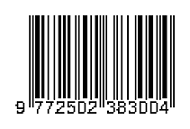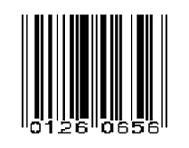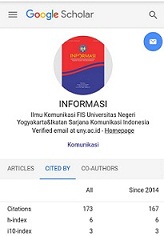A study on the pattern of selfie culture among university students in Bangladesh
DOI:
https://doi.org/10.21831/informasi.v54i1.70546Keywords:
Selfie culture, self-presentation, self-esteem, narcissism, digital world, Bangladesh.Abstract
This study endeavors to explore the determinants behind the prevalence of selfie culture in the light of self-presentation strategies. It applied Erving Goffman's (1959) Self-Presentation theory to scrutinize the pattern of selfie culture among university students in Bangladesh. Following a qualitative methodology, semi-structured interviews were conducted among 20 participants as a purposive sample age range from 20 to 25 years old. The results demonstrate that the participants tend to invest considerable attention to take selfies, afterward use filters to maximize the "best version" of the self, and eventually post them in the digital world. Their desire to represent the "best version" of themselves and gain the attention of others reflect the narcissist traits of the participants. Also, their level of self-esteem increases when they feel confident and see their "retouched image" after using photographic filters.
References
Alblooshi, A. (2015). Self-esteem levels & selfies: The relationship between self-esteem levels and the number of selfies people take and post, and the uses and gratifications of taking and posting selfies (Master's Thesis) Retrieved from http://jewlscholar.mtsu.edu/handle/mtsu/4760
Al-Kandari, A. A., & Abdelaziz, Y. A. (2018). Selfie-taking motives and social psychological dispositions as predictors of selfie-related activities among university students in Kuwait. Mobile Media & Communication, 6(3), 291-308. https://doi.org/10.1177%2F2050157917737124
Amurao, R. M., & Castronuevo, E. (2016). Selfie behavior and narcissism among selected females. The Bedan Journal of Psychology, 1(5), 24-33. https://www.academia.edu/download/54166745/BJP2016v1-25.pdf
Barry, C. T., Doucette, H., Loflin, D. C., Rivera-Hudson, N., & Herrington, L. L. (2017). "Let me take a selfie": Associations between self-photography, narcissism, and self-esteem. Psychology of popular media culture, 6(1), 48-60. https://doi.org/10.1037/ppm0000089
Bell, B. T., Cassarly, J. A., & Dunbar, L. (2018). Selfie-objectification: Self-objectification and positive feedback ("likes") are associated with frequency of posting sexually objectifying self-images on social media. Body image, 26, 83-89. https://doi.org/10.1016/j.bodyim.2018.06.005
Biolcati, R., & Passini, S. (2018). Narcissism and self-esteem: Different motivations for selfie posting behaviors. Cogent Psychology, 5(1), 1437012. https://doi.org/10.1080/23311908.2018.1437012
Boursier, V., Gioia, F., & Griffiths, M. D. (2020). Do selfie-expectancies and social appearance anxiety predict adolescents' problematic social media use?. Computers in Human Behavior, 110, 106395. https://doi.org/10.1016/j.chb.2020.106395
Braun, V., & Clarke, V. (2006). Using thematic analysis in psychology. Qualitative research in psychology, 3(2), 77-101. http://dx.doi.org/10.1191/1478088706qp063oa
CAMBRIDGE UNIVERSITY PRESS. (n.d). Cambridge Dictionary. Retrieved from https://dictionary.cambridge.org/dictionary/english/narcissism
Caso, D., Schettino, G., Fabbricatore, R., & Conner, M. (2020). "Change my selfie": Relationships between self"objectification and selfie"behavior in young Italian women. Journal of Applied Social Psychology, 50(9), 538-549. https://doi.org/10.1111/jasp.12693
Dhir, A., Pallesen, S., Torsheim, T., & Andreassen, C. S. (2016). Do age and gender differences exist in selfie-related behaviours?. Computers in Human Behavior, 63, 549-555. https://doi.org/10.1016/j.chb.2016.05.053
Dhir, A., Torsheim, T., Pallesen, S., & Andreassen, C. S. (2017). Do online privacy concerns predict selfie behavior among adolescents, young adults and adults?. Frontiers in psychology, 8, 815. https://doi.org/10.3389/fpsyg.2017.00815
Dutta, E., Sharma, P., Dikshit, R., Shah, N., Sonavane, S., Bharati, A., & Sousa, A. D. (2016). Attitudes toward selfie taking in school-going adolescents: an exploratory study. Indian Journal of Psychological Medicine, 38(3), 242-245. https://doi.org/10.4103/0253-7176.183094
Galbraith, M. W. (1994). Connecting instructional principles to self-esteem. Adult Learning, 5(3), 24-31. https://doi.org/10.1177/104515959400500312
Goffman, E. (1959). The presentation of self in everyday life. New York: Anchor Books.
Iqani, M., & Schroeder, J. E. (2016). # selfie: Digital self-portraits as commodity form and consumption practice. Consumption Markets & Culture, 19(5), 405-415. https://doi.org/10.1080/10253866.2015.1116784
Islam, T. M. (2021, July 4). Selfitis: the selfie caused mental disorder. The Daily Star. Retreived from https://www.thedailystar.net/health/disease/disease-control/news/selfitis-the-selfie-caused-mental-disorder-2122861
Kleemans, M., Daalmans, S., Carbaat, I., & Anschí¼tz, D. (2018). Picture perfect: The direct effect of manipulated Instagram photos on body image in adolescent girls. Media Psychology, 21(1), 93-110. https://doi.org/10.1080/15213269.2016.1257392
Mathas, A. (2011). The self as muse: Narcissism and creativity in the german imagination 1750-1830. Bucknell University Press.
Mills, J. S., Musto, S., Williams, L., & Tiggemann, M. (2018). "Selfie" harm: Effects on mood and body image in young women. Body image, 27, 86-92. https://doi.org/10.1016/j.bodyim.2018.08.007
Pounders, K., Kowalczyk, C. M., & Stowers, K. (2016). Insight into the motivation of selfie postings: Impression management and self-esteem. European Journal of Marketing, 50(9/10), 1879-1892. http://dx.doi.org/10.1108/EJM-07-2015-0502
Qiu, L., Lu, J., Yang, S., Qu, W., & Zhu, T. (2015). What does your selfie say about you?. Computers in Human Behavior, 52, 443-449. http://dx.doi.org/10.1016/j.chb.2015.06.032
Shah, R., & Tewari, R. (2016). Demystifying "˜selfie': a rampant social media activity. Behaviour & Information Technology, 35(10), 864-871. https://doi.org/10.1080/0144929X.2016.1201693
Shin, Y., Kim, M., Im, C., & Chong, S. C. (2017). Selfie and self: The effect of selfies on self-esteem and social sensitivity. Personality and Individual Differences, 111, 139-145. http://dx.doi.org/10.1016/j.paid.2017.02.004
Silber, E., & Tippett, J. S. (1965). Self-esteem: Clinical assessment and measurement validation. Psychological Reports, 16(3), 1017-1071. https://doi.org/10.2466/pr0.1965.16.3c.1017
Sorokowski, P., Sorokowska, A., Oleszkiewicz, A., Frackowiak, T., Huk, A., & Pisanski, K. (2015). Selfie posting behaviors are associated with narcissism among men. Personality and Individual Differences, 85, 123-127. https://doi.org/10.1016/j.paid.2015.05.004
Srivastava, S., Upadhaya, P., Sharma, S., & Gupta, K. (2018). Exploring factors behind offline and online selfie popularity among youth in India. Frontiers in psychology, 9, 1403. https://doi.org/10.3389/fpsyg.2018.01403
Stuart, J., & Kurek, A. (2019). Looking hot in selfies: Narcissistic beginnings, aggressive outcomes?. International Journal of Behavioral Development, 43(6), 500-506. https://doi.org/10.1177%2F0165025419865621
Thomaes, S., Brummelman, E., Reijntjes, A., & Bushman, B. J. (2013). When Narcissus was a boy: Origins, nature, and consequences of childhood narcissism. Child Development Perspectives, 7(1), 22-26. http://dx.doi.org/10.1111/cdep.12009
Thomaes, S., Poorthuis, A., & Nelemans, S. (2011). Self-Esteem. In B. B. Brown & M. J. Prinstein (Eds.), Encyclopedia of Adolescence (316-324). England: Elsevier. http://dx.doi.org/10.1016/B978-0-12-373951-3.00037-5
Tiggemann, M., Anderberg, I., & Brown, Z. (2020). Uploading your best self: Selfie editing and body dissatisfaction. Body Image, 33, 175-182. https://doi.org/10.1016/j.bodyim.2020.03.002
Wang, R., Yang, F., & Haigh, M. M. (2017). Let me take a selfie: Exploring the psychological effects of posting and viewing selfies and groupies on social media. Telematics and Informatics, 34(4), 274-283. https://doi.org/10.1016/j.tele.2016.07.004
Yellowlees, R., Dingemans, A. E., Veldhuis, J., & de Vaate, A. B. (2019). Face yourself (ie): Investigating selfie-behavior in females with severe eating disorder symptoms. Computers in Human Behavior, 101, 77-83. https://doi.org/10.1016/j.chb.2019.07.018
Zhao, S., & Zappavigna, M. (2018). Beyond the self: Intersubjectivity and the social semiotic interpretation of the selfie. New Media & Society, 20(5), 1735-1754. https://doi.org/10.1177%2F1461444817706074
Downloads
Published
Issue
Section
License
Authors who publish with this journal agree to the following terms:- Authors retain copyright and grant the journal right of first publication with the work simultaneously licensed under a Creative Commons Attribution License that allows others to share the work with an acknowledgement of the work's authorship and initial publication in this journal.
- Authors are able to enter into separate, additional contractual arrangements for the non-exclusive distribution of the journal's published version of the work (e.g., post it to an institutional repository or publish it in a book), with an acknowledgement of its initial publication in this journal.
- Authors are permitted and encouraged to post their work online (e.g., in institutional repositories or on their website) prior to and during the submission process, as it can lead to productive exchanges, as well as earlier and greater citation of published work (See The Effect of Open Access).




















